Common Mistakes to Avoid When Renting a Dumpster
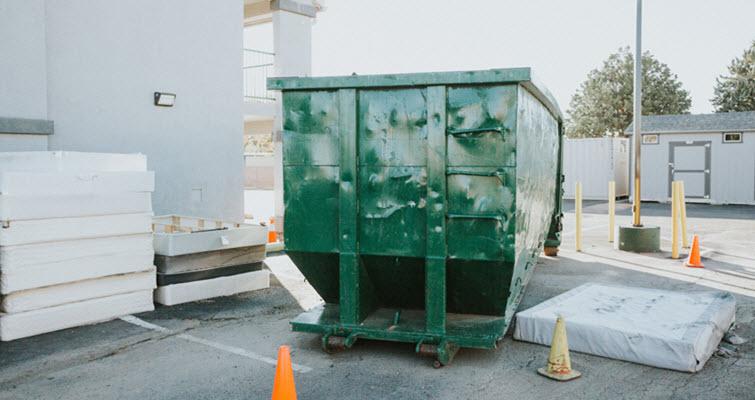
Renting a dumpster can be cost-effective and practical for managing substantial cleaning or waste disposal tasks. But you must prepare ahead when hiring a dumpster to avoid problems, lost cash, and even safety risks. It is crucial to avoid typical dumpster rental mistakes like selecting the incorrect size container or packing it incorrectly. You can ensure your experience goes successfully by familiarising yourself with the proper ways to hire and operate a dumpster. Know the most common mistakes contractors and do-it-yourselfers make when renting a dumpster.
Things to Avoid While Renting a Dumpster
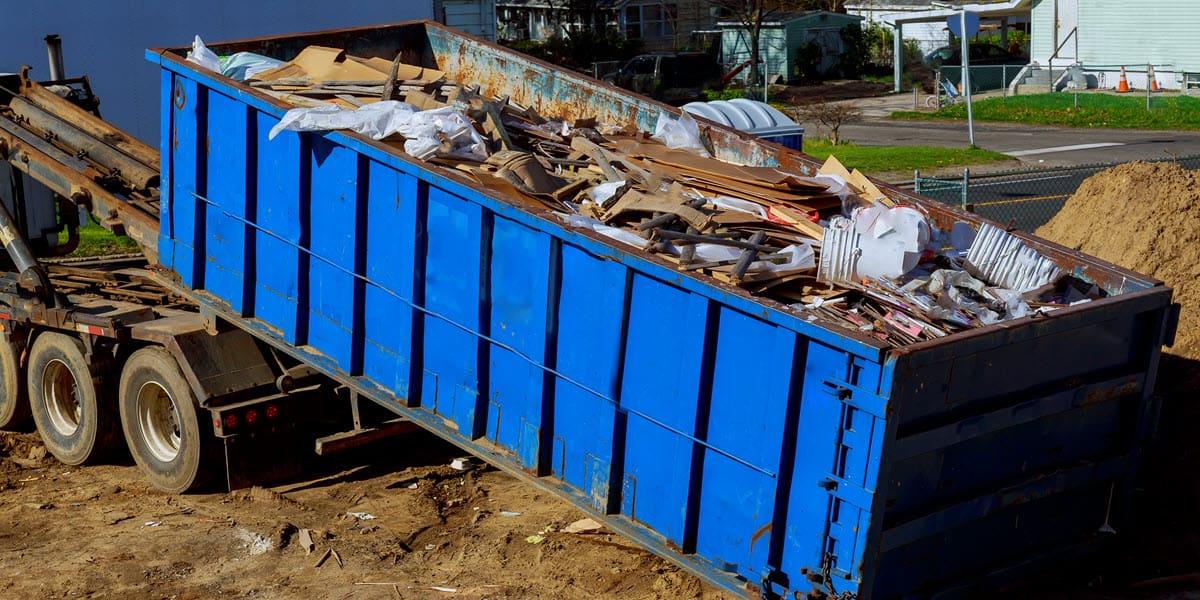
Listed below are some things that you must keep in mind while renting a dumpster:
Selecting the Wrong Dumpster Size
Selecting the wrong-sized dumpster is one of the most frequent mistakes that individuals make when renting a dumpster. If you select a too tiny dumpster, your waste may overflow, and you may have to pay more for a second one’s delivery. However, since you are paying for extra capacity that is not being used, going for a large-sized dumpster is a financial waste.
Make a list of all the waste that has to be disposed of. This is contingent upon factors such as the size of the area being renovated, the type of waste being disposed of, and the quantity of personnel loading the waste. A 30 cubic-yard dumpster could be needed for a full home renovation, yet only a 10 cubic-yard container would be needed for a bathroom refurbishment. Discuss your demands and unique projects with the rental business for the perfect size.
Consider any weight constraints as well. The majority of typical household dumpsters can hold up to 3,000 pounds. You can be charged overage costs if you exceed the weight restriction. A more significant grade commercial dumpster with a weight capacity of more than 5,000 pounds is the better choice for bulky items like concrete. To discover the right dumpster size, you can explore the S&A Container Service, which is well-known in this business.
Improper Placement of Dumpster
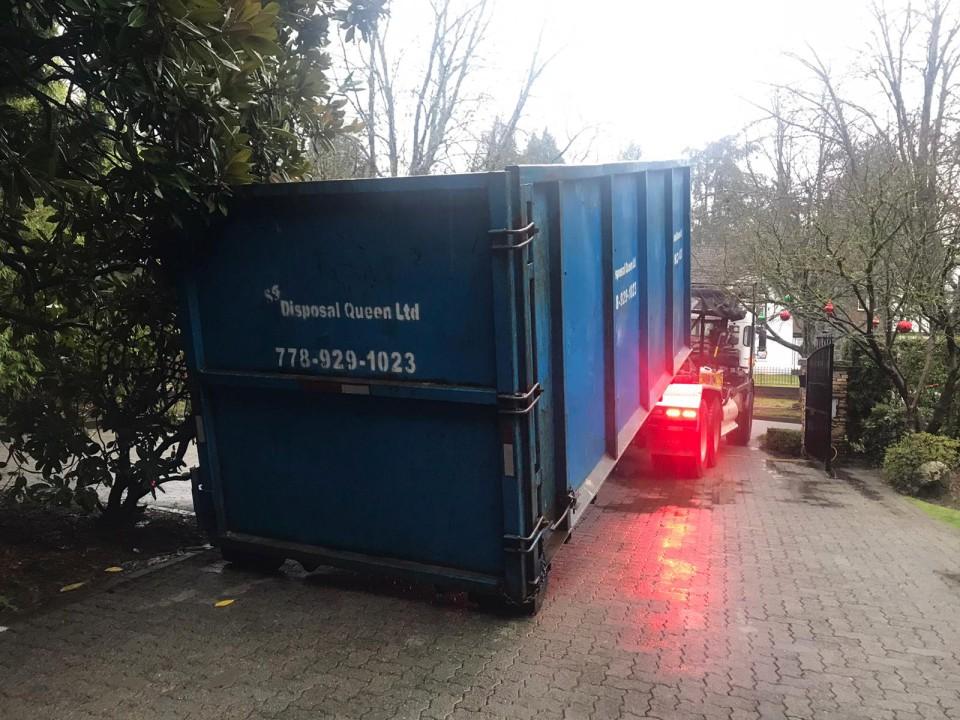
Think carefully about the placement of the dumpster on your property. While ease of access is essential, keep in mind the following needs:
Have adequate space for the waste on your property so that it doesn’t obstruct any buildings, cars, or pedestrian routes. Make sure you have enough space for drop-off and pick-up by taking measurements.
Obeying any dumpster placement regulations set down by the housing association or zoning code. Many forbid placing anything on the street without specific permission.
Do not hinder oncoming traffic or vehicles in your driveway.
Confirming that the surface is level and strong enough to sustain a large, fully laden dumpster. Steer clear of soft terrain where the weight might sink.
Check with the dumpster rental business about the location to transport the unit.
Hazardous Overloading
Improper dumpster loading can result in accidents and additional costs. When weight restrictions are broken, or garbage is piled dangerously high, overloading occurs. Then:
- Injuries are caused by debris falling if waste is stacked too high.
- The collapse of the dumpster due to excessive interior weight.
- The truck overturns while being transported if weight restrictions are greatly exceeded.
- Moving or emptying the overfilled dumpster is difficult.
- Substantial overage charges from the rental provider.
Load safely by:
- Distributing the weight uniformly, not only in one spot, within the waste.
- Putting lighter garbage bags below larger objects, such as dirt or concrete.
- Keeping waste below the upper border to prevent spills.
- Covering unsecured waste with tarps will stop it from moving while being transported.
- Disassembling large, heavy objects, such as furniture, to save room.
Breaking the Loading Rules
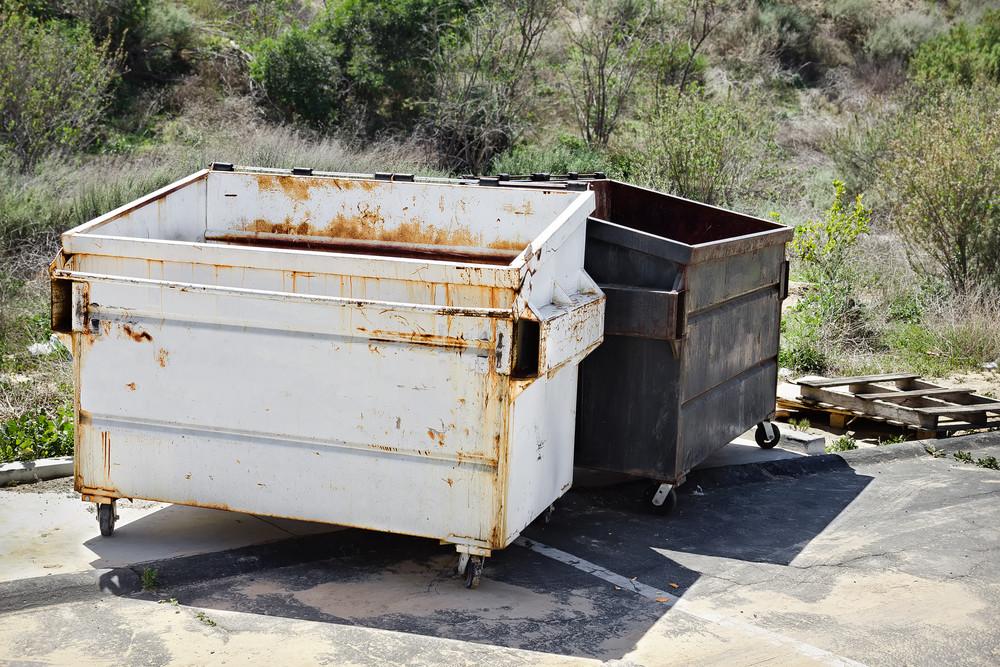
There are restrictions on what can and cannot be put in dumpsters provided by rental businesses. Infractions of these loading guidelines will result in fines, delays, and even accidents. Here are certain things that you must keep in mind:
- Hazardous materials, such as paint, chemicals, batteries, propane tanks, and lightbulbs, need to be disposed of specifically.
- Refrigerators and air conditioners are appliances that use refrigerants and must be serviced by licensed professionals.
- Gasoline and oil-based liquids are not allowed in dumpsters.
- Large pieces of concrete or mounds of earth that increase weight.
- Loose branches and tree stumps that can protrude and hurt people.
- Electronics, as a lot of local governments forbid the landfilling of e-waste.
- Anything that your local garbage authority has prohibited you from disposing of.
Always ask the dumpster rental provider about forbidden materials and make alternate arrangements for disposal when necessary.
Covering the Dumpster Improperly
You can face issues if the dumpster needs to be adequately covered between garbage loading. Dumpsters without covers permit:
- Rainwater collects at the bottom, gaining mass and pushing away waste.
- Lighter waste will be blown out into nearby regions by the wind.
- Pests such as birds, rodents, and others enter the garbage.
- Unpleasant smells coming from decaying waste.
- Adjacent households will unlawfully contribute waste, quickly overflowing the container.
Using plastic sheeting to cover the waste between loads keeps waste contained and minimizes annoyances like bugs and odors. Simply take off the sheet when you’re adding more supplies. Tarps are provided for hire by certain businesses. If not, head to your local hardware shop and pick up some recycled billboard vinyl or a heavy-duty canvas tarp.
Keeping It Too Long on the Site
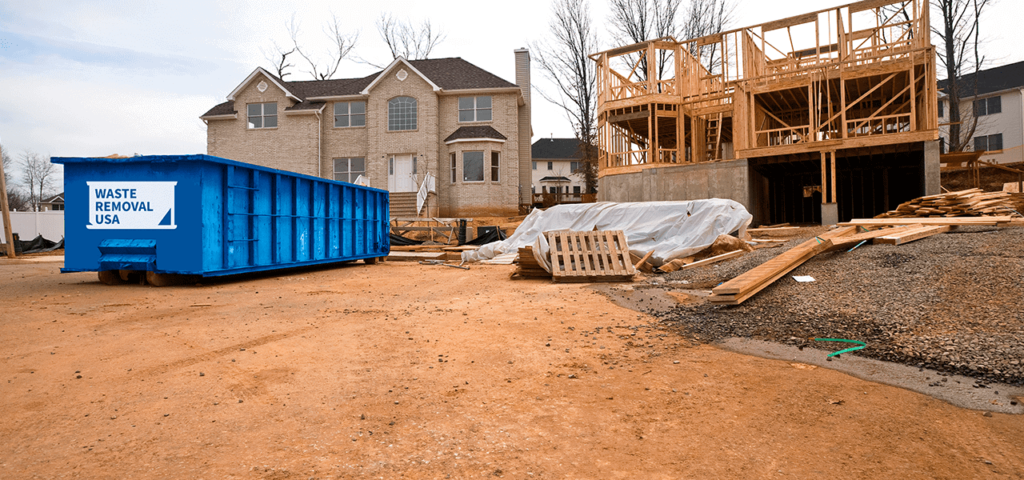
The typical dumpster rental duration is 7 to 14 days. If the rental time is extended, you must pay daily rental costs until the item is picked up. Not making the timely collection call also slows the rental company’s changeover procedure. This lowers the number of dumpsters they have available in the neighborhood.
Put the agreed-upon rental duration in your calendar and arrange for a pickup on the last day. Allow a few extra days in case your project takes longer than expected. If an extension is required, contact the rental business once to schedule a time. They could bring in a second dumpster and begin the rental period over.
Letting Kids Play Close to the Dumpster
For children, a rented dumpster could appear like a thrilling new addition to your home. But there are serious safety risks associated with playing near or within a dumpster, such as:
- Injuries resulting from glass breakage, rusted metal, splintered wood, or sharp debris within the waste.
- Waste spills out and hits a young person next to the waste.
- Suffocation if confined beneath garbage heaps.
- Exposure to hazardous chemicals or waste can cause illness.
- If the dumpster lid were closed, being trapped within.
Make it clear that kids and pets are not allowed in the dumpster. While the waste is being hauled from your property, give children safe areas to play elsewhere. When loading the dumpster, keep kids well away to prevent contamination and injury.
Lack of Advance Area Preparation

Examine the dumpster area in advance to avoid last-minute delays. Determine whether tree branches, overhead wires, or other obstacles must be removed to allow the vehicle to enter and exit. The rental provider can advise you on the required minimum clearances for width and height.
Examine the area of the ground where the dumpster will also be placed. Is this a level piece of land? Does the area need gravel or paved, or must the heavy dumpster be kept from sinking into the soft dirt or asphalt with a plywood pad or wood board set down? When you prepare the area, the dumpster will be ready to use.
Conclusion
In conclusion, you can hire a dumpster securely and expertly by being aware of these typical hazards and mistakes. Making thorough plans for dumpster location, size, loading, and collection time can ensure a seamless rental experience from beginning to end. If you abide by these dumpster dos and don’ts, you can cross hassle-free waste removal off your list of things to do for your project.



